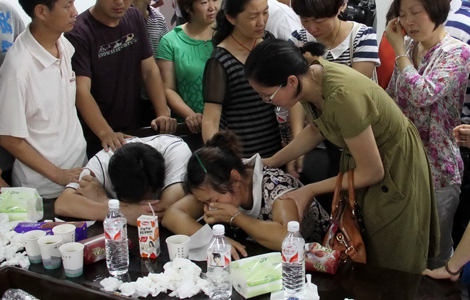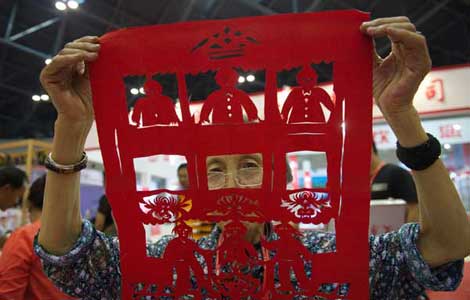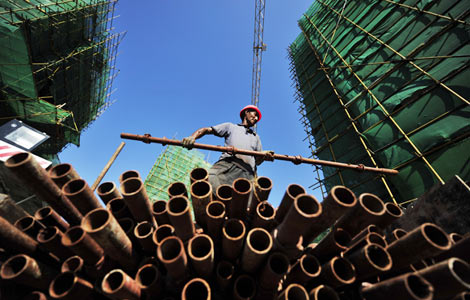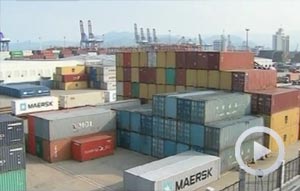Intense focus on debt
Updated: 2013-07-05 07:21
By Chen Jia (China Daily)
|
||||||||

China's leadership is expected to focus on averting any potential debt crisis and following a prudent policy in the coming quarter, to build a sound foundation for steady reforms, said Zhang Zhiwei, chief economist in China at Nomura Securities.
The nation is going through a deleveraging process, which is a priority for deepening the transformation of the economic growth pattern. The earlier the debt ratio can be lowered, the higher the probability China has to avoid a financial crisis, Zhang said.
"Keeping credit growth moderate, in line with GDP growth, and pushing structural reforms to boost growth may be the current task of the new leadership."
In his view, de-leveraging may continue for two or three years, and macroeconomic policy is unlikely to be aggressively eased during that period, unlike what the former government leaders did in 2008 amid the global downturn. China should count on detailed reform measures in the third quarter to provide more room to support stable growth as well as curb systemic financial risks.
Otherwise, the prudent stance may drag down GDP growth expectations to 7 percent after three months, the economist said.
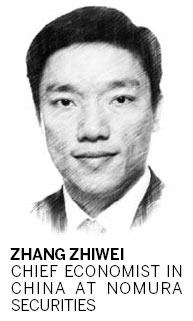
"But it is hard to discover the next, new driving force of the world's largest emerging economy. Excessive production capacity is a nationwide concern in the manufacturing sector, so only a huge technology revolution can spark the industrial growth engine."
The next growth point is likely to emerge from the service sector, Zhang said.
It's necessary to break the monopoly of State-owned enterprises, including the financial and telecommunication service businesses, as a basis for boosting economic development to improve productivity.
"Any reform will shake some group's interests, otherwise there can be no improvement. Maybe the government should take bigger steps."
But to support a specific industry through excessive investment will be "dangerous", Zhang said, citing the the photovoltaic industry, which is stagnant now.
The cash crunch exposed in the past two weeks was a sign that the central bank is determined to slow liquidity growth in the interbank market.
According to Zhang, commercial banks' profits may be affected by the tight controls, especially those intended to limit creation of new wealth management products, a main component of the shadow banking system.
Most Viewed
Editor's Picks

|

|

|

|

|

|
Today's Top News
Boeing 777 passenger 'mumbled a prayer'
Showing off in Shanxi
Workers return after dispute
Job seekers should be cautious abroad
River pollution sparks criticism
Victim's family mourn loss
Terror attack was planned: suspect
Booming security industry needs skilled youth
US Weekly

|

|
